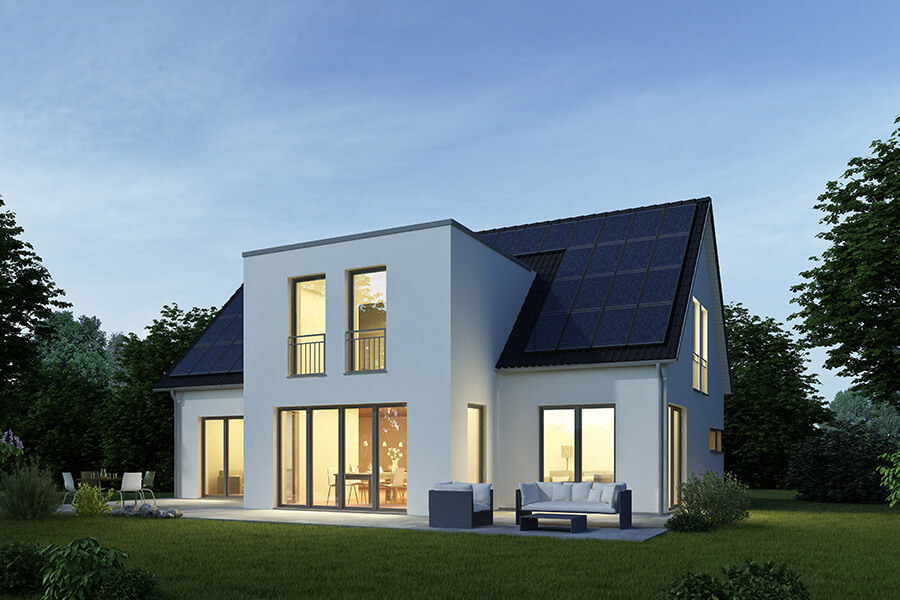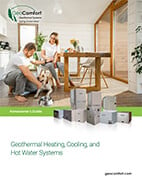The residential home market is in a constant state of flux. This is reflected not only in the market value of homes, but also in what goes into those homes – and these items heavily influence how and what consumers purchase. This goes for new construction as well as pre-existing structures. Every year, more and more homeowners look for energy efficiency when buying a new home. According to a study performed by Shelton Group, 85% of homeowners said they’d pay more for an Energy Star-certified home. Since over 42% of a home’s utility bills are attributed to heating, cooling, and hot water costs, this is absolutely the first place we need to look to get our projects up to snuff for the modern homeowner.

What Are the Steps to Building Efficiently?
There are four basic steps that we must follow if we want to build in the most efficient manner.
Step 1: Insulation
A Porsche with a gaping hole in the gas tank is no more functional than an ’87 Camry. By the same token, a home with all the amenities wrapped in poor insulation is simply an expertly crafted mistake! A tight thermal envelope and smart approach to insulation is a home that is set up to see the most success in performance and comfort.
Step 2: Install a Geothermal System
According to the EPA, Geothermal is far-and-away the most efficient way to heat, cool, and provide hot water for a home. With proper insulation, a smaller system is used which results in the perfect balance between low installation cost, high efficiency, and consistency in comfort and performance.
Step 3: Install a Solar Array
Building on our first two steps, a solar array is a perfect compliment to a well-insulated and efficiently-conditioned home. With this setup, it is entirely possible to provide most or all of a home’s energy needs with a comparatively small array which, again, saves on costs all-around.
Step 4: Get Batteries
The party doesn’t have to stop when the sun goes down! With battery storage, the homeowner really doesn’t have to worry about needing backup power on rainy days or long nights. With batteries, going off-grid is entirely possible. As with many emerging technologies, this product is becoming increasingly popular, and homeowners are getting access to better quality batteries for progressively lower costs.
The Benefits of Offering Geothermal and Solar
As a business in the home and real-estate space, it is becoming increasingly vital that business owners diversify their revenue streams. Not only to mitigate the damage due to environmental factors, but in an effort to better service their customers! For homeowners, there is already an astronomical amount of information and data to sort through. When building for energy efficiency, that amount of headache increases exponentially. If they can work with a partner that acts as their one-stop-shop for energy efficiency, they are far more likely to follow through with the large project, and the business is far more likely to increase their customer base.
If you’re worried about training up the right people with the right information to do the right job, don’t worry. Enertech offers training for both geothermal and solar technologies. Learn more here.
Real-World Results
Not only is this combination effective for the installer’s business, but it is both practical and attainable for the homeowner, when done properly. Take Mark and Kathryn, for example. They had big goals for their new-construction home in Minnesota, primarily being to reach net-zero energy consumption for the home and electric vehicles.
With a water-to-water geothermal system providing 100% of their hot water and a solar array providing 20,000 kWh annually, the home is already producing more and consuming less energy than homes of a comparable size. Mark and Kathryn crafted this home from the perspective of energy savings, not only cost savings. As a result, during their performance testing period, the home pulled 9,998 kWh of energy from the grid, but sent 18,467 kWh of energy to the grid, resulting in -8,469kWh of net energy use.
Learn more about this project (installed with our GeoComfort brand products) here.
The combination of solar and geothermal is a powerful one as long as it is well-executed, and is beneficial for the installer, homeowner and, ultimately, the environment.

